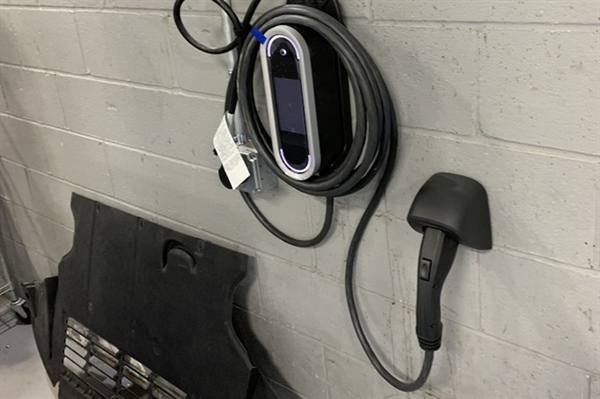Things To Consider When Deciding on EV Charger Installation

As electric vehicles (EVs) become more prevalent, installing a home charging station is a practical consideration for many homeowners. That's why understanding the various aspects of EV charger installation is essential to ensure safety, efficiency, and compliance.
This article explores key considerations, including the types of EV chargers suitable for residential use, compliance with local regulations, seamless integration into your home's electrical system, the benefits of home EV charger installation, and maintenance support.
Types of EV Chargers Recommended for Homes
When selecting an EV charger for home use, it's important to understand the available options. EV chargers are categorized into three levels:
- Level 1 Chargers: These use a standard 120-volt outlet and provide a slow charging rate, typically adding about 2 to 5 miles of range per hour. They are suitable for overnight charging but may not meet the needs of all EV owners.
- Level 2 Chargers: Operating on a 240-volt circuit, Level 2 chargers offer a faster charging rate, adding approximately 10 to 60 miles of range per hour, depending on the vehicle and charger specifications. They are ideal for daily use and can fully charge most EVs overnight.
- Level 3 Chargers (DC Fast Chargers): These provide rapid charging by converting AC power to DC within the charger. However, due to their high cost and power requirements, they are typically used in commercial settings rather than residential homes.
For most homeowners, a Level 2 charger strikes a balance between installation cost and charging efficiency, making it a popular choice for residential use.
Ensuring Compliance with Local Regulations
Installing an EV charger involves adherence to local building codes and electrical standards to ensure safety and compliance. Key considerations include:
- Permitting: Obtaining the necessary permits from local authorities before installation is crucial. This process ensures that the installation meets all safety and code requirements.
- Electrical Codes: Compliance with the National Electrical Code (NEC) and any local amendments is essential. This includes proper circuit sizing, grounding, and installation of safety devices like ground fault circuit interrupters (GFCIs).
- Inspection: After installation, a thorough inspection by a certified inspector verifies that the work complies with all applicable codes and standards.
Adhering to these regulations not only ensures safety but also protects homeowners from potential legal and insurance issues.
Integrating EV Chargers Seamlessly into Your Home
Seamless integration of an EV charger into your home's electrical system requires careful planning and execution:
- Electrical Panel Assessment: Evaluating your home's electrical panel to determine if it can handle the additional load of an EV charger is the first step. Upgrades may be necessary to accommodate a Level 2 charger.
- Dedicated Circuit Installation: Installing a dedicated circuit for the EV charger prevents overloading existing circuits and ensures safe operation.
- Charger Placement: Strategically locating the charger for convenience and minimizing installation costs is important. Factors such as proximity to the parking area and existing electrical infrastructure should be considered.
Professional installation ensures that these factors are properly addressed, resulting in a safe and efficient charging setup.
Benefits of Home EV Charger Installation
Installing an EV charger at home offers several advantages:
- Convenience: Home charging eliminates the need to visit public charging stations, allowing you to charge your vehicle overnight and start each day with a full battery.
- Cost Savings: Home electricity rates are generally lower than public charging fees, leading to long-term savings. Additionally, some utility companies offer special rates for EV owners.
- Increased Property Value: As EVs become more common, having a home charging station can enhance your property's appeal to potential buyers.
These benefits make home EV charger installation a worthwhile investment for many homeowners.
Supporting EV Charger Maintenance
Regular maintenance of your EV charger ensures its longevity and reliable performance:
- Routine Inspections: Periodic checks of the charger and associated electrical components help identify and address potential issues before they become serious problems.
- Firmware Updates: Keeping the charger's software up to date can improve functionality and security.
- Professional Servicing: Engaging qualified technicians for maintenance and repairs ensures that any work performed meets safety standards and preserves the warranty.
Proactive maintenance practices contribute to the safe and efficient operation of your home EV charging system. By carefully considering the type of EV charger to install, adhering to local regulations, ensuring seamless integration, and understanding the benefits of home charging, homeowners can make informed decisions about EV charger installation.
SoCal Electrical & Lighting’s expertise in these areas provides homeowners with a comprehensive solution tailored to their needs. To learn more about electric vehicle chargers, call SoCal Electrical & Lighting at 760-699-2686 or reach out to us online!